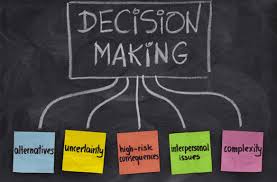Ethical Decision Making Model in Counseling
When it comes to counseling, ethical decision making is of utmost importance. Counselors often face complex situations that require careful consideration and adherence to ethical guidelines. Utilizing an ethical decision making model can help counselors navigate these challenging scenarios with integrity and professionalism.
Understanding the Ethical Decision Making Model
The ethical decision making model provides a structured approach for counselors to assess, analyze, and resolve ethical dilemmas. This model typically involves the following steps:
- Identifying the ethical issue at hand
- Gathering relevant information and facts
- Considering applicable ethical codes and principles
- Exploring potential courses of action
- Evaluating the consequences of each option
- Making a decision based on ethical considerations
- Reflecting on the outcome and adjusting as needed
Benefits of Using an Ethical Decision Making Model
By following an ethical decision making model, counselors can ensure that their actions are aligned with professional standards and best practices. This approach promotes transparency, accountability, and trust between counselors and their clients. It also helps counselors uphold their commitment to promoting the well-being of those they serve.
Challenges in Ethical Decision Making
While the ethical decision making model provides a framework for addressing ethical dilemmas, counselors may still encounter challenges along the way. Factors such as personal biases, conflicting values, or external pressures can complicate the decision-making process. It is essential for counselors to remain vigilant and self-aware throughout this process.
Conclusion
In conclusion, the ethical decision making model is a valuable tool for counselors to navigate complex ethical dilemmas with professionalism and integrity. By following a structured approach to decision making, counselors can uphold the highest standards of ethics in their practice and promote positive outcomes for their clients.
Five Key Principles for Ethical Decision-Making in Counseling
- 1. Consider the well-being of all individuals involved in the decision-making process.
- 2. Adhere to ethical guidelines and principles set forth by professional counseling organizations.
- 3. Seek supervision or consultation when faced with complex ethical dilemmas.
- 4. Reflect on personal biases and values that may impact your decision-making process.
- 5. Prioritize confidentiality and informed consent throughout the counseling process.
1. Consider the well-being of all individuals involved in the decision-making process.
When utilizing the ethical decision-making model in counseling, it is crucial to consider the well-being of all individuals involved in the process. This tip underscores the importance of taking into account the impact of decisions on not only the counselor and client but also any other relevant parties. By prioritizing the well-being of all individuals, counselors can ensure that their decisions are made with empathy, fairness, and respect for everyone’s interests and needs. This approach fosters a supportive and inclusive environment that promotes ethical conduct and positive outcomes in counseling sessions.
2. Adhere to ethical guidelines and principles set forth by professional counseling organizations.
To ensure ethical decision making in counseling, it is crucial to adhere to the ethical guidelines and principles established by professional counseling organizations. These guidelines serve as a roadmap for counselors, outlining the ethical standards and expectations that should guide their practice. By following these principles, counselors can maintain integrity, uphold client confidentiality, and prioritize the well-being of those they serve. Compliance with these standards not only fosters trust between counselors and clients but also reinforces the professionalism and credibility of the counseling profession as a whole.
3. Seek supervision or consultation when faced with complex ethical dilemmas.
When faced with complex ethical dilemmas in counseling, it is crucial to seek supervision or consultation. Seeking guidance from experienced professionals can provide valuable insights and perspectives that help counselors navigate challenging situations with clarity and confidence. Supervision or consultation can offer support, guidance, and a fresh viewpoint to ensure that ethical decisions are made thoughtfully and in the best interest of the client. This collaborative approach enhances the quality of care provided to clients and upholds the ethical standards of the counseling profession.
4. Reflect on personal biases and values that may impact your decision-making process.
In the ethical decision-making model for counseling, it is crucial to reflect on personal biases and values that may influence the decision-making process. By taking the time to acknowledge and understand our own biases and values, counselors can ensure that their decisions are guided by ethical considerations rather than personal preferences. This self-reflection allows counselors to approach each situation with objectivity and integrity, ultimately leading to more ethical and effective outcomes for their clients.
5. Prioritize confidentiality and informed consent throughout the counseling process.
In the ethical decision making model in counseling, it is crucial to prioritize confidentiality and informed consent throughout the counseling process. Upholding confidentiality ensures that clients feel safe and secure in sharing their personal information and concerns with their counselor. Similarly, obtaining informed consent from clients regarding the counseling process, including potential risks and benefits, promotes transparency and empowers clients to make informed decisions about their treatment. By prioritizing confidentiality and informed consent, counselors demonstrate respect for their clients’ autonomy and build a foundation of trust essential for effective counseling outcomes.




